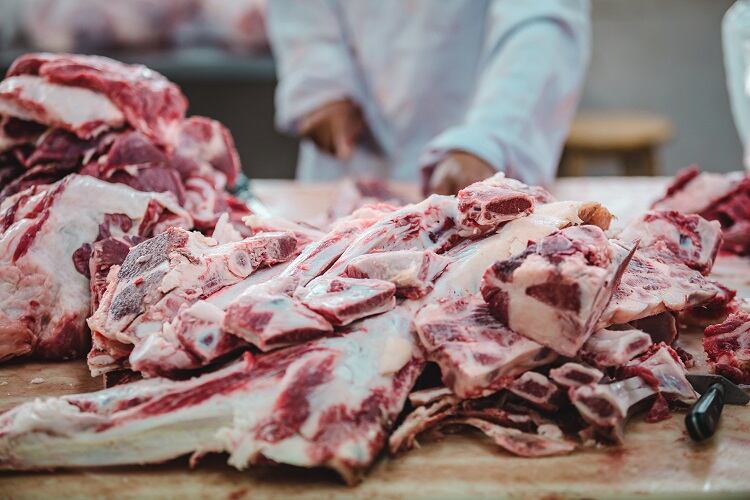In the meat sector, species substitution fraud occurs when food producers substitute or add meat species which are cheaper, but not necessarily desirable, for economic gain.
The most famous example of fraudulent species substitution was detected in 2013. In the Horsemeat Scandal, horsemeat was identified in prepared frozen and meat products that were said to contain beef.
Seven years on, experts say COVID-19 is increasing the risk of food fraud in the meat sector. Are we headed for Horsegate 2.0?
Unprecedented shortages of meat
The meat processing industry has been one of the hardest hit by the coronavirus pandemic.
It has been suggested that the cold, temperature-controlled environments of meat processing plants may favour transmission of COVID-19. At the same time, these sites also contain large numbers of people working in close proximity, and their travel and living arrangements could lend themselves in increased transmission risk.
“The rural locations of many meat plants mean that workers often opt for house-sharing and car-sharing in the absence of other types of accommodation and transport,” British Meat Processors Association president Nick Allen told this publication last month.
“These two factors [including the cold factory environment] that were once simply part of the job, mean that our key workers face extra challenges and a higher risk of contracting COVID-19.”
An obvious fallout from these factors, from a meat supply standpoint, is that the industry has observed unprecedented production shortages.
In the US, for example, meatpacking facilities were reported to have been running at 95% average compacity compared to 2019. In South America, Brazil’s meat processing industry was hit by multiple outbreaks.
Europe has also seen its fair share of shuttered facilities, with a significant number of employees testing positive for COVID-19 in Germany and the UK.
“Entire meat plants are closing,” said Jackie Healing, who heads up consulting and technical services at certification and testing agency NSF UK.
“And the early indications are that this is going to be a problem for the industry – the facilities are almost certainly conducive to the spread of the virus, in a way that perhaps some other manufacturing environments are not,” she told delegates at this year’s Food ingredients Europe (FiE) CONNECT.
Illegal meat substitution
“We are seeing massive shortages of meat production,” Healing continued, which is causing ripple effects “all the way up the chain to on-farm”.
At the same time, demand for beef in retail has risen sharply. This combination of heightened demand and reduced supply can offer new fraud opportunities for criminals.
The consulting and technical services lead warned she expects to see ‘greater and greater risk’ of meat-based food fraud as a result. And not so much major, criminal-led food fraud, she stressed, but more ‘substitution type issues’. This type of fraud, she continued, is particularly prevalent in areas of provenance.

David Psomiadis, Business Development Manager at Imprint Analytics, also stressed the heightened risk of food fraud while speaking at the FiE online event.
“We do know that the outbreak has created an extreme economic environment globally. Its consequences in the food industry have increased the desire for economic gain,” he told delegates.
“In addition, we are already experiencing shortages in supply chains that result in food suppliers experiencing extra pressure to deliver products to their customers. And they will make decisions that they wouldn’t have made before.”
The business development lead highlighted one recent example recorded by the EU Rapid Alert System for Food and Feed (RASFF). In May this year, two fraudulent horsemeat shipments were seized – in the Netherlands and Denmark – with one intended for ‘unauthorised placing on the market’.
Other risk factors
Production shortages alone are not solely responsible for an increased risk of food fraud activity. National or regional lockdowns, as well as mounting economic pressure, can lead to reduced supervision on-site during quality procedures, Imprint Analytics’ Psomiadis explained.
Further, disruptive labour shortages due to closed borders can also play a role. In this instance, businesses may be forced to hire unskilled labour. NSF’s Healing suggested businesses – across all food sectors – ask themselves exactly how much transitory labour is actually needed, and whether manual processes can be automated.
But if Healing could offer just one piece of advice to manufacturers, it would be to look after their supply base, she revealed. “This is the time to have strong relationships with suppliers.
“This is not the time to be tendering out and looking for the cheapest product on the market, because that is almost certainly going to be a high-risk strategy for you going forward.”





